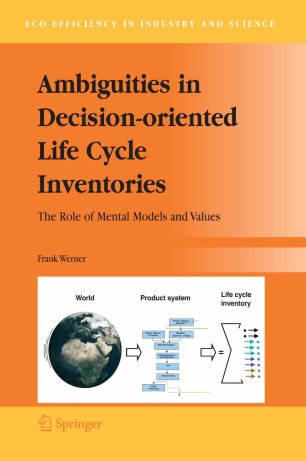
Ambiguities in Decision-oriented Life Cycle Inventories
Publication year: 2005
: 978-1-4020-3254-7
In an environmental life cycle assessment of products (LCA), an unambiguous, scientifically based, ‘objective’ attribution of material and energy flows to a product is pure fiction. This is due to the fundamental epistemological conditions of LCA as a modelling process under the complexity of our socio-economic system. Instead, various mental models and values guide this attribution. This leads to a functional model in a specific decision situation. This book shows for the first time how mental models and values influence this attribution in the life cycle inventory step of LCA. One of the key findings is that the different management rules for a sustainable use of materials must be taken into account for the attribution of material and energy flows to a product. Otherwise, improvement options recommended by an LCA might turn out to even worsen the environmental situation if reassessed from a meta-perspective. As a consequence of this book, the claim of unambiguitiy (‘objectivity’) of the life cycle inventory must be abandoned. A group-model building process for LCA is developed that allows one to grasp the decision makers' mental models and values in the inventory analysis on a case- and situation-specific basis. Only by this, LCA results will become relevant in a decision-making process. Two case studies on the modelling of recycling and other end-of-life options of aluminium windows and beech wood railway sleepers in LCA complement the methodological part.
: Business and Economics, Life Cycle Assessment, development, environment, environmental management, life-cycle assessment (LCA)